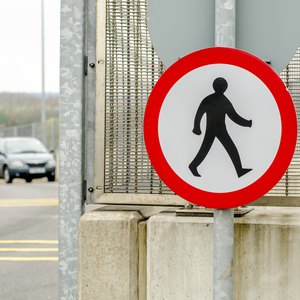
Everyone knows that kids cost money – and for different reasons at different ages. If you're not expecting it, you're liable to find yourself blindsided by a hefty auto insurance bill when your child begins driving. According to a 2016 article by InsuranceQuotes.com, you can expect a 79 percent increase of your annual premium when adding a teen to your policy, but this figure varies tremendously from state to state.
Tips
Your insurance rate should not be affected when your child gets a permit. They will need to obtain their own auto insurance, however, when they qualify for an official driver's license.
Permits Vs. Licenses
The good news is that most insurers don't require you to add your child to your policy when they receive their permit, and those that do probably won't increase your premiums during this time period. The bad news is that if your teen has their permit, it won't be long until they take their driving test and become a licensed driver, typically in about two to six months. Even without adding your child when they receive their permit, they are generally covered while driving your vehicle because you or another licensed driver must be in the car with them. Some states further restrict these young drivers to operating vehicles only during daylight hours. Getting an actual license changes these rules. Your teen can drive alone, typically any time they like, although some states do impose restrictions for the first year of vehicle operation.
Why Age Affects Premiums
As with any new skill, the longer you practice driving, the more accomplished you become. When your child graduates from their permit to their license, the difference on your insurance bill will be quite apparent. Although it typically costs more to insure teenage boys than girls, statistics indicate that young people of both sexes are more likely to cost insurers money in claims. They not only have less experience, but they sometimes use faulty judgment. According to the Esurance website, 16-year-olds are more than twice as likely to be involved in an automobile accident as drivers in the 20 to 24-year-old age range.
Laws Regarding Coverage
After your child gets their driver's license, you probably won't have any choice but to insure them. Even if you don't buy them a car of their own, they have the potential of driving yours because they live in your household. Typically, all licensed drivers in a household must be listed on your policy unless they have policies of their own. In this case, you can buy your teen a separate policy, but this might actually be even more expensive.
What You Can Do
Now that you know that your budget is going to take a hit when your teenager trades in her permit for a real license, you can plan a little to mitigate the expense. If you do buy them a car of their own, older vehicles are less costly to insure than new ones. Certain vehicles, such as sports cars, will break the bank. If you don't get her a car and you're absolutely sure they won't be driving yours, some insurers might allow you to exclude your young driver from your policy. This involves a special endorsement, the downside being that they can never get behind the wheel. If they do and are involved in an accident, the damage won't be covered. You can also ask your insurance company about good student discounts and the possibility of having your teenager take a safe driving course. These measures can cut your premiums as well.
References
Writer Bio
Beverly Bird has been writing professionally for over 30 years. She is also a paralegal, specializing in areas of personal finance, bankruptcy and estate law. She writes as the tax expert for The Balance.

